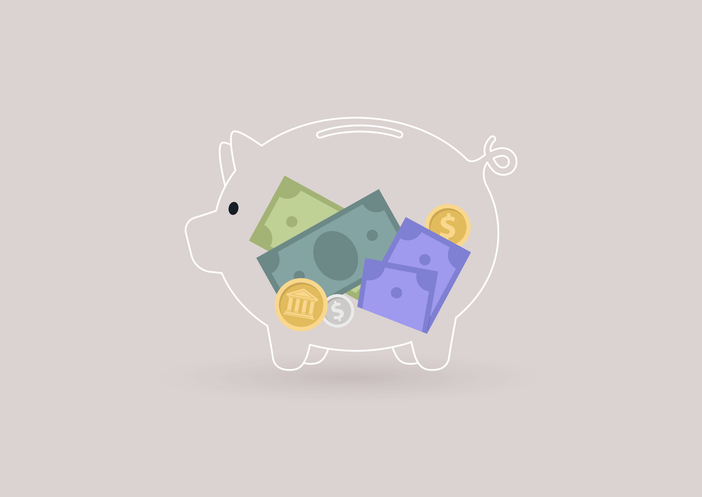Saving for retirement is a big part of financial planning, but building up a personal savings account you can use today is important, too. You never know when you’ll need extra funds–whether it’s for emergency home repair, if you lose your job, if your car dies and you suddenly need to buy a new one, or any other unplanned event comes up. Sometimes known as a fund for a “rainy day,” savings accounts are crucial in order to get through the various crises life can throw at you. In fact, experts recommend you have at least six months worth of wages saved up at any given time so that you can afford life for a while after losing a job.
So how do you best build up your personal savings account? Here are a few tips.
1. Pay Yourself First
Every time you receive a paycheck, make sure to take out a certain amount of money to put into savings. You should be doing this for your retirement account, too, but your employer might already have taken that money out if you have retirement savings through your job. If you put all your money into your checking account and hope there is money left at the end to save, you will likely end up spending all of it. Decide how much you will put away and take that money out first thing.
2. Automate Your Savings
The best way to “pay yourself first” is to automatically have money deducted from your paycheck and placed into your savings account. You can often do this through your bank or through your employer. This way, you don’t even have to think about if you will put money aside and how much money that will be. The money will automatically get put into your personal savings account.
3. Save Bonuses and Tax Refunds
Instead of spending your tax refund on a vacation, put it away in your savings account. The same with bonuses. This is often money you weren’t necessarily expecting and therefore didn’t factor into your monthly expenses–meaning, it is “extra” money. Even if you only place a percentage of this extra money into savings, it still helps and is a great way to give a nice boost to your savings account.
4. Increase Your Income
Whether you look for a higher-paying job or you ask for a raise at your current one, increasing your income is a natural next step after you’ve exhausted all your other methods of savings. Once you are able to bring home more money, you can increase the amount you put into your savings account each month.
Your Personal Savings Account Takes Planning
Personal savings accounts are not built in a day, but small, consistent contributions make a big difference over time. The experts at DeSantis, Kiefer, Shall, & Sarcone are always here to help you manage your finances and figure out the best ways for you to save in order to both reach your financial goals and be prepared in case of an emergency.






